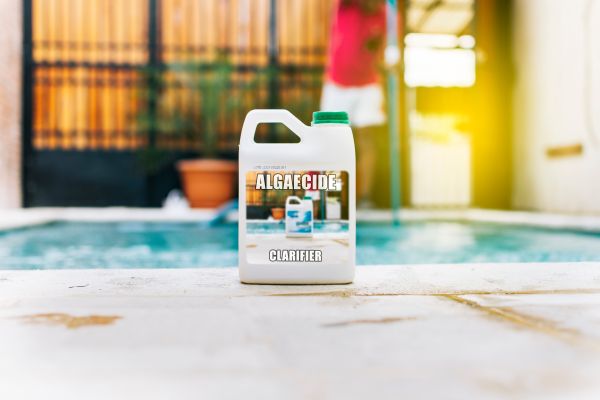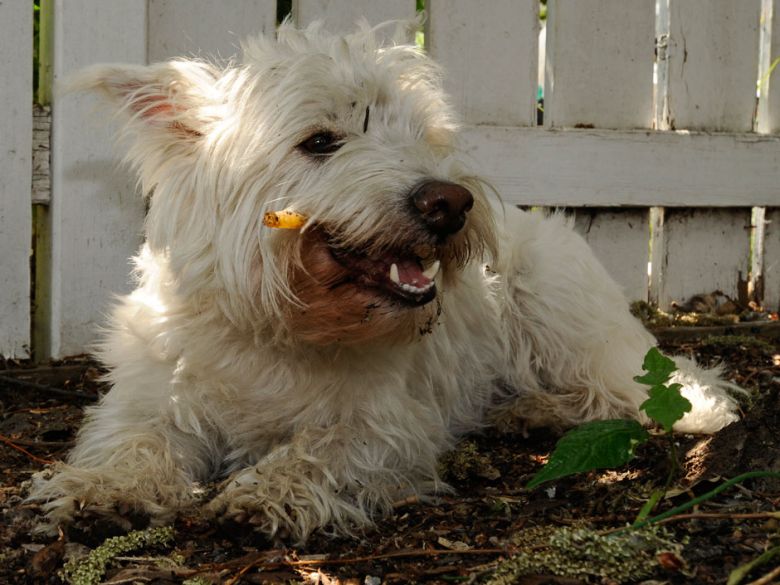When you have a swimming pool, many chemicals are needed to keep the water and the pool clean. One of these is an algaecide. These are used to control algae in pools, which can be a huge problem. Another issue can be your dog! His curiosity may get the better of him if he finds algaecide. Your dog could decide to eat it for some reason. But what happens if a dog eats algaecide?
Connect with a verified veterinarian in minutes. Licensed vets are available 24/7 to answer your questions. No need to worry about your furry family member.
Has your dog eaten algaecide? Are you worried the algaecide will make your dog sick? If so, you’ve come to the right place. We understand it can be scary when your dog eats something like this.
We’ve gathered information about algaecide and whether it can make a dog sick. Let’s get started!

What is Algaecide?
Algaecides are chemicals used to kill algae and prevent it from growing in the pool. There are different types of algaecides, but some of the most common include copper ions as the active ingredient. Another common algaecide continues copper sulfate or chelated copper ion. Some algaecides contain quaternary ammonium compounds or polymeric quaternary ammonium compounds.
Algaecides are pool chemicals that must be used as directed and used with care. It’s essential to follow the manufacturer’s instructions at all times.
While algaecides are considered safe to use in pools, what happens if a dog eats algaecides? Can algaecides make a dog sick?
Algaecides & Dogs
Unfortunately, algaecides can make a dog pretty sick. These products are very irritating to the mouth, esophagus, and stomach. In serve cases, it can cause ulcerative lesions that may cause a perforated stomach, which can be deadly.

Review symptoms, medications & behavior to keep your pets healthy with a Vet Online in just minutes.
Ask a Vet Live NowSymptoms of Algaecide Ingestion in Dogs
You may notice these symptoms if your dog has eaten algaecide:
- Lesions in the esophagus, mouth, and stomach
- Vomiting
If you notice these symptoms in your dog, call the vet immediately. This is an emergency.
Note: Do not induce vomiting, as the algaecide can cause more damage if vomited up. It can also be aspirated into the lungs.
Treatment of Algaecide Ingestion in Dogs
The vet will provide your dog with medication to stop the vomiting. They may also give your dog medication to protect his esophagus and stomach. In some cases, your fur baby may require an IV for fluids and to administer medications.
The vet will treat any other symptoms as they arise.
The prognosis is best for dogs who receive prompt medical treatment after eating algaecides. In the future, it’s a good idea to keep algaecides and all pool chemicals out of your dog’s reach. You’ll both be happier for it!
Connect with a verified veterinarian in minutes. Licensed vets are available 24/7 to answer your questions. No need to worry about your furry family member.

Tom
Tom has always loved to write since he was little - he wanted to be either a writer or a veterinary doctor, but he ended up being a professional writer while most of his works are based on animals. He was born in San Francisco but later moved to Texas to continue his job as a writer. He graduated from the University of San Francisco where he studied biotechnology. He is happily married and a soon to be father!
Review symptoms, medications & behavior to keep your pets healthy with a Vet Online in just minutes.
Ask a Vet Live Now




